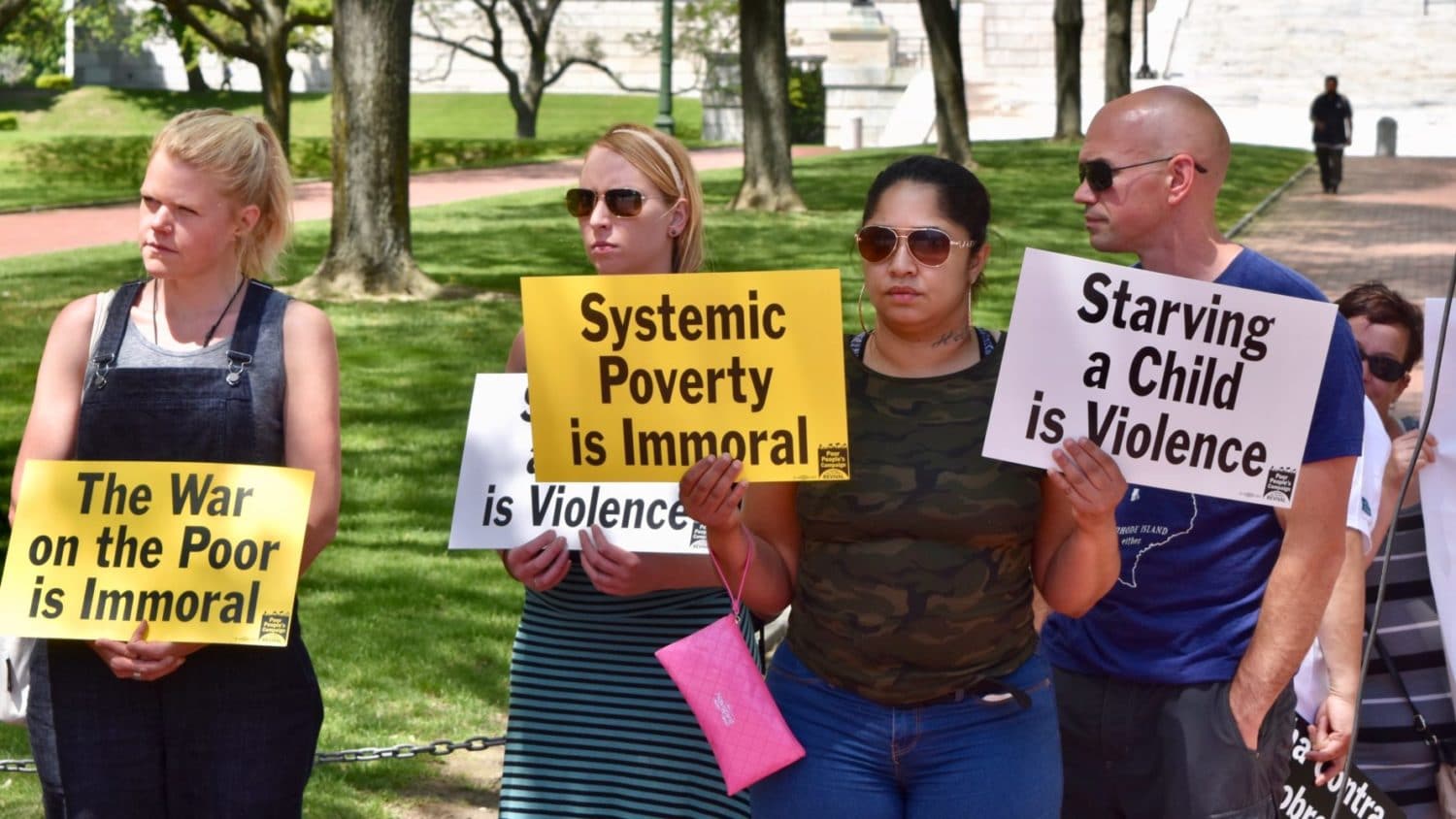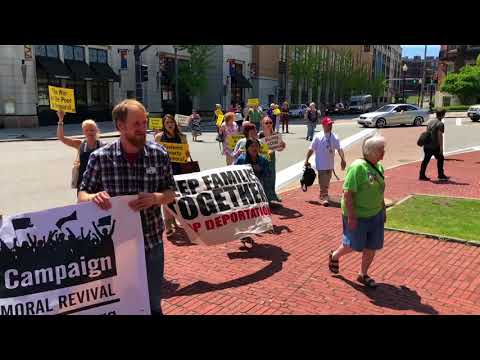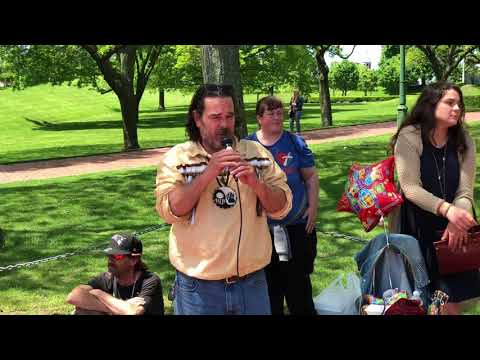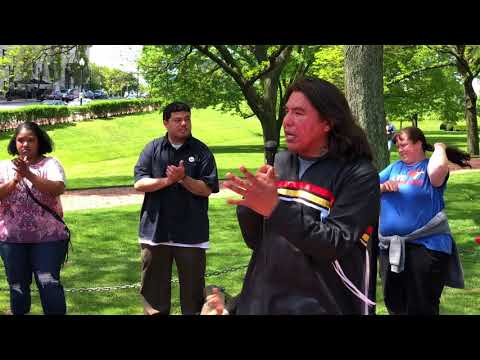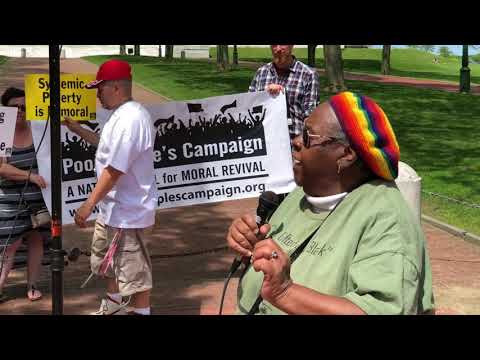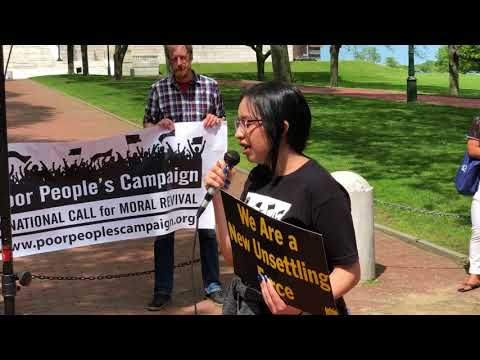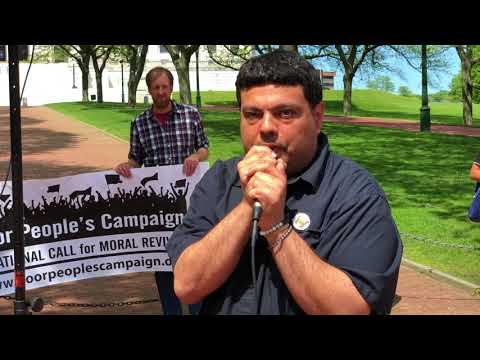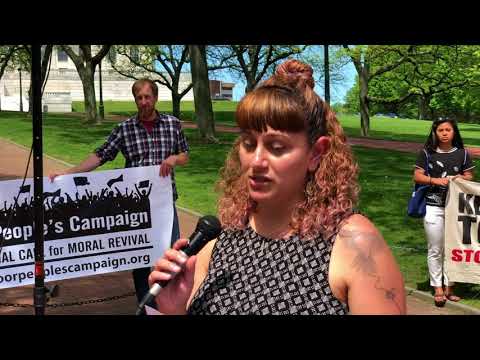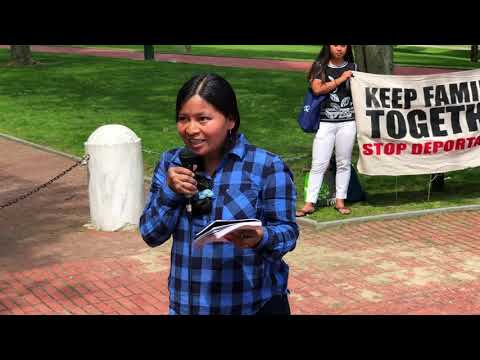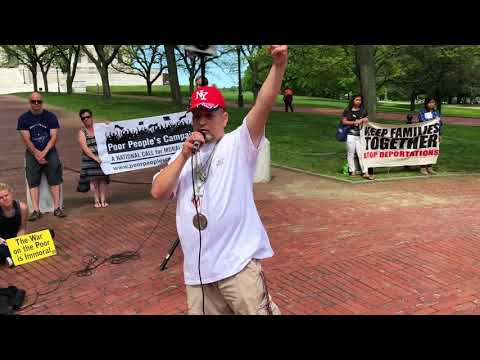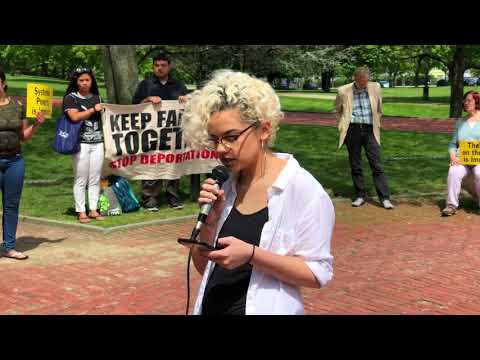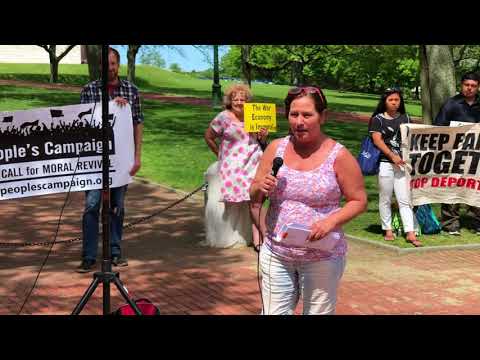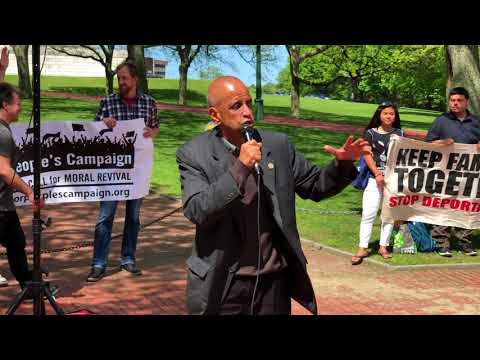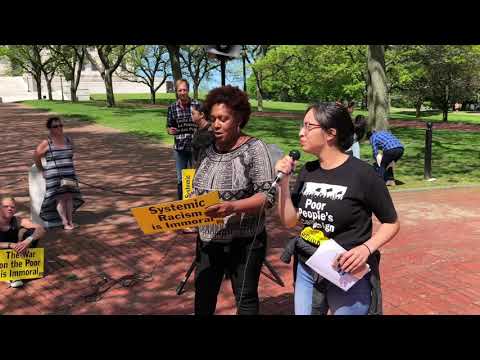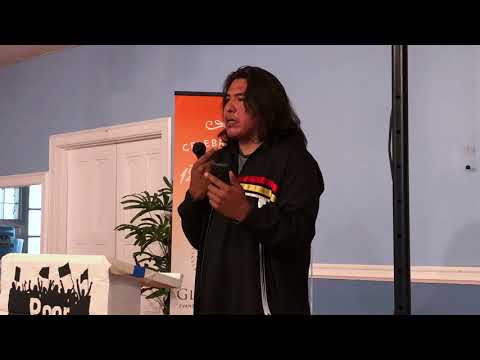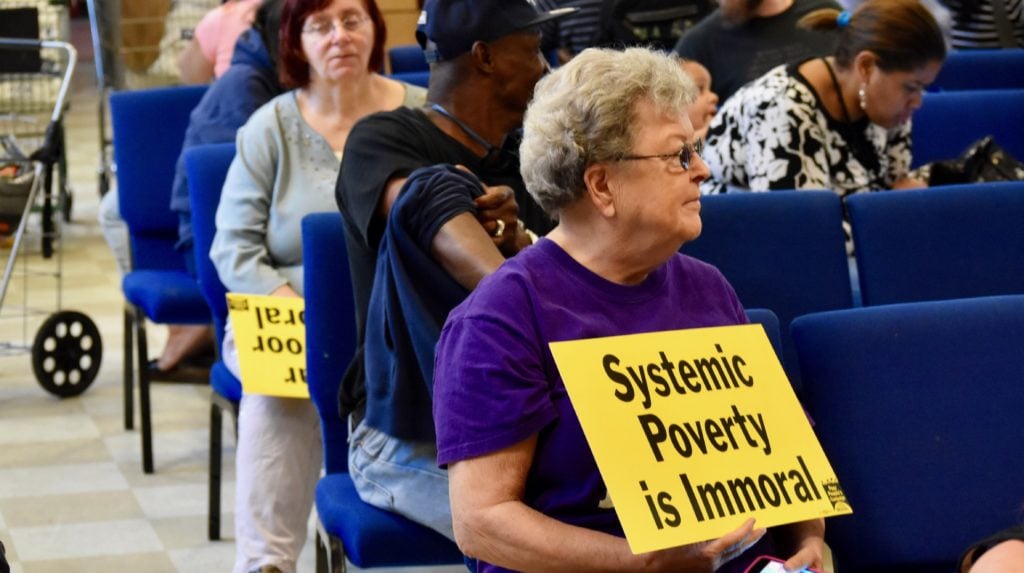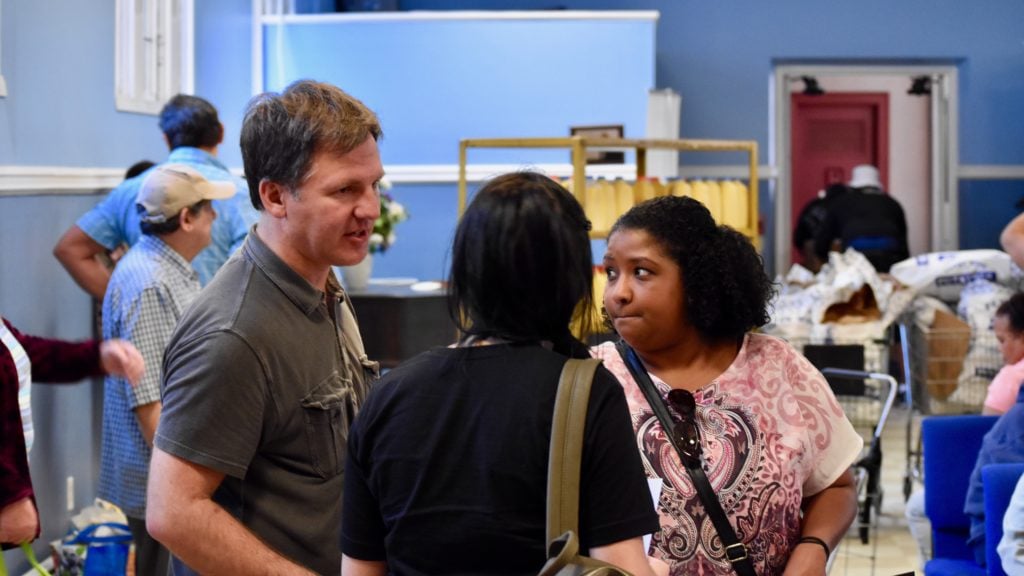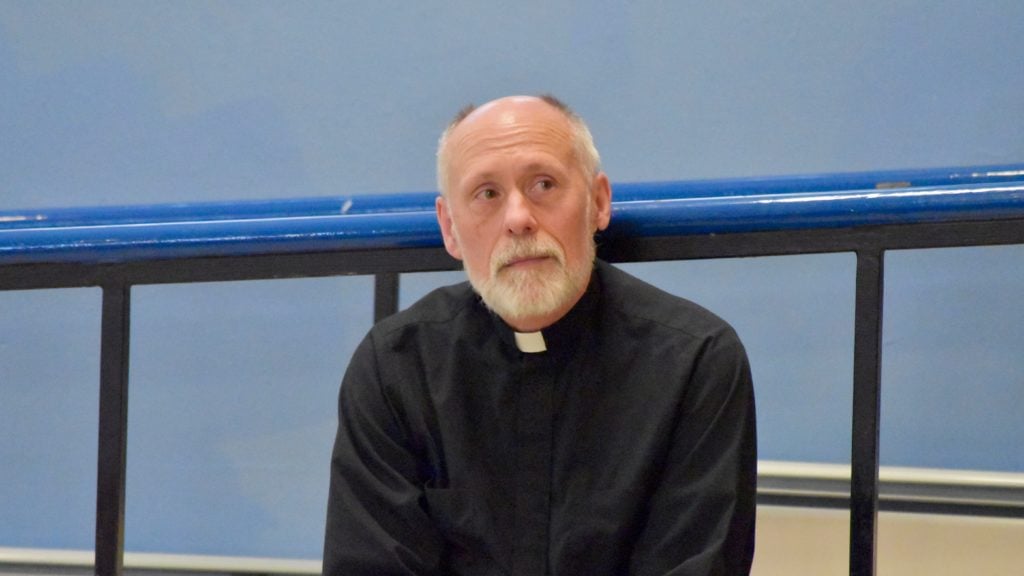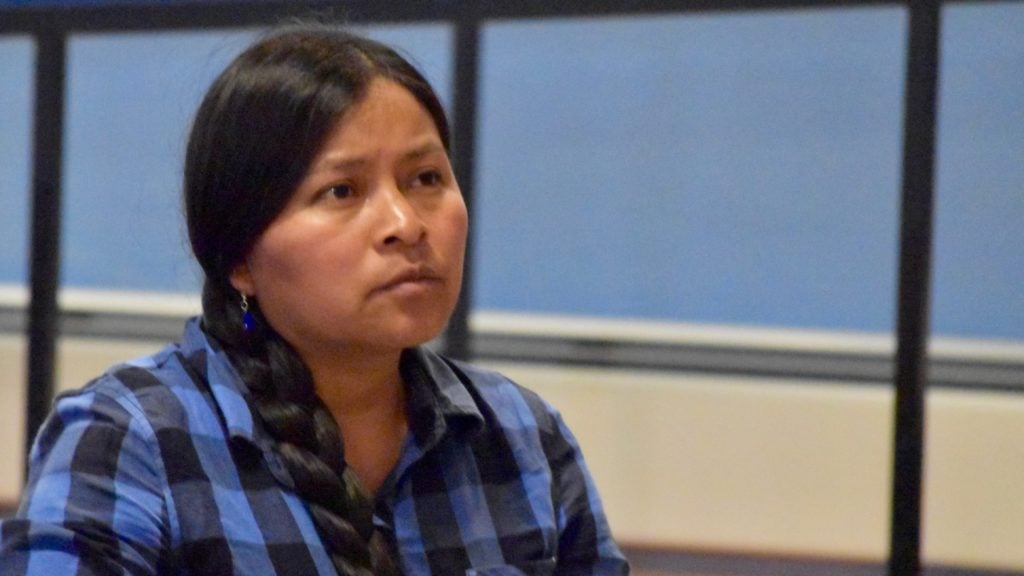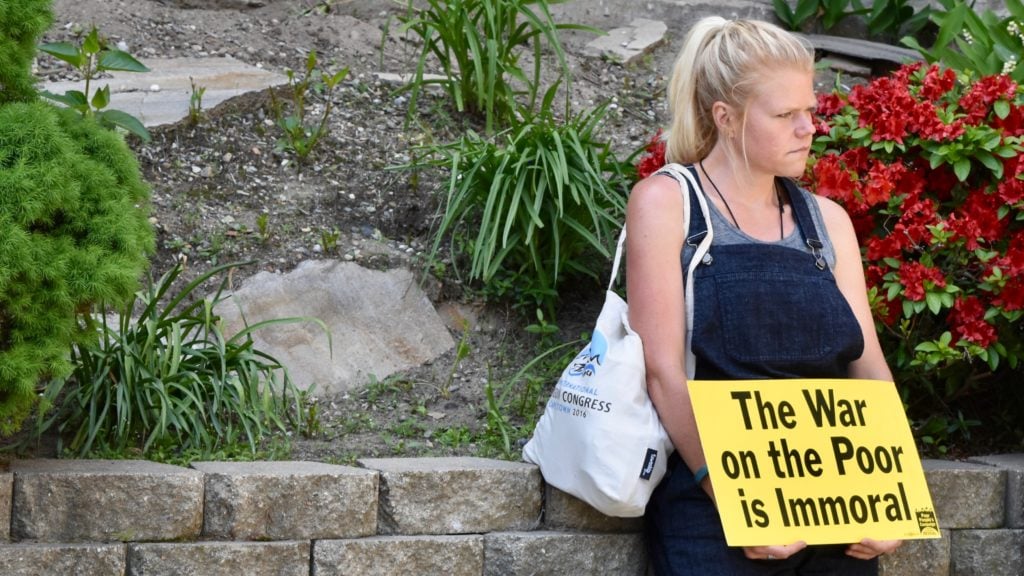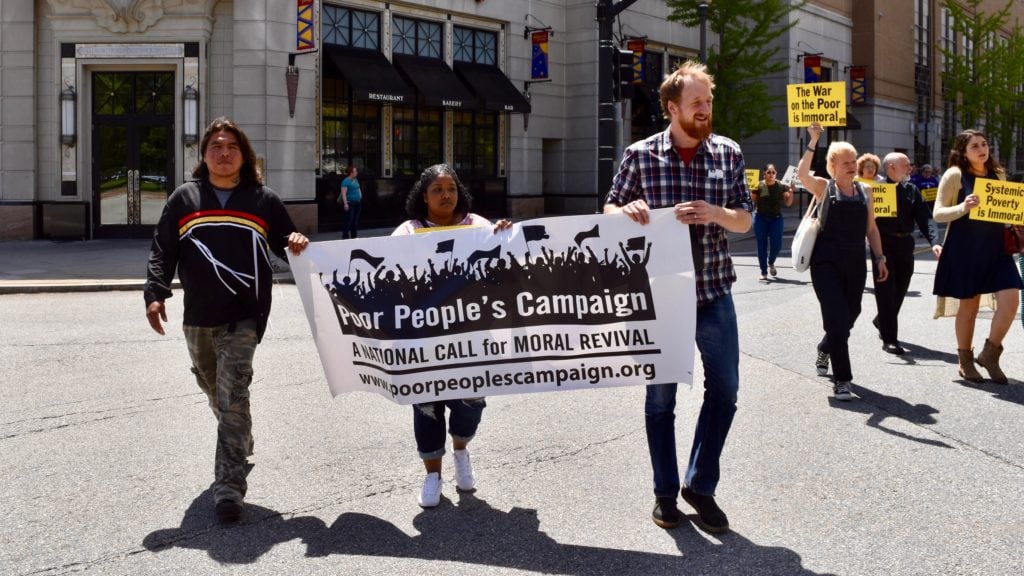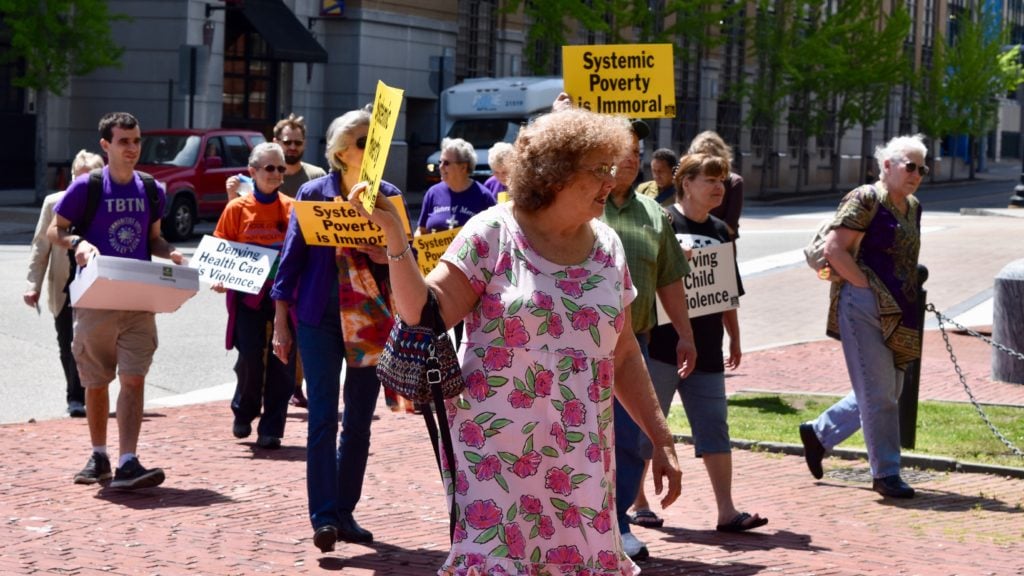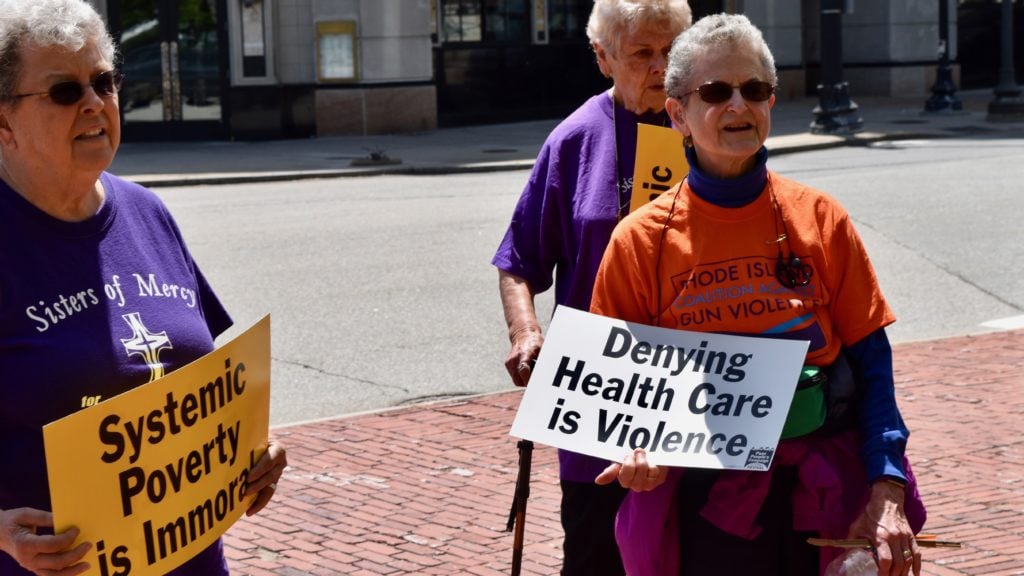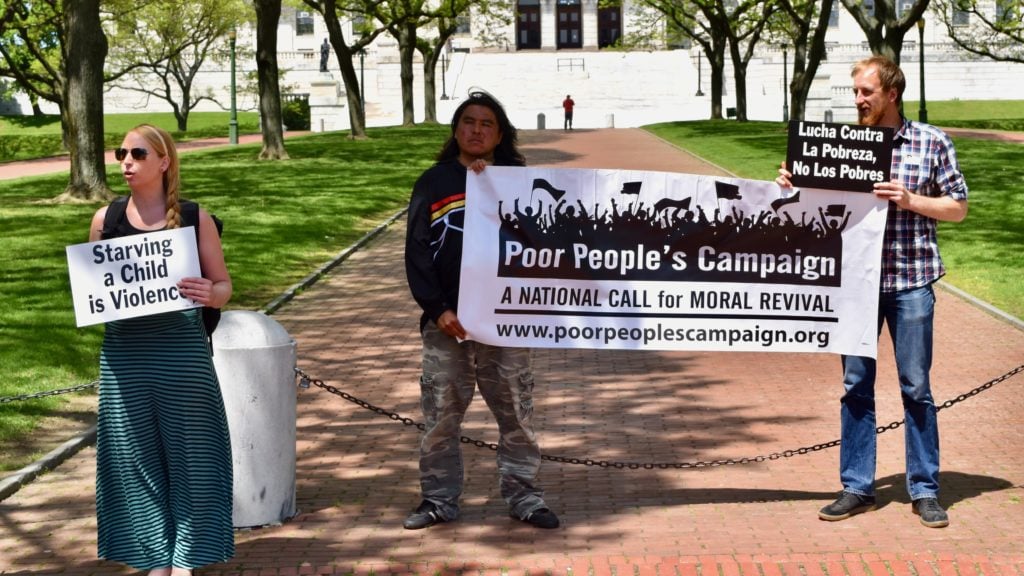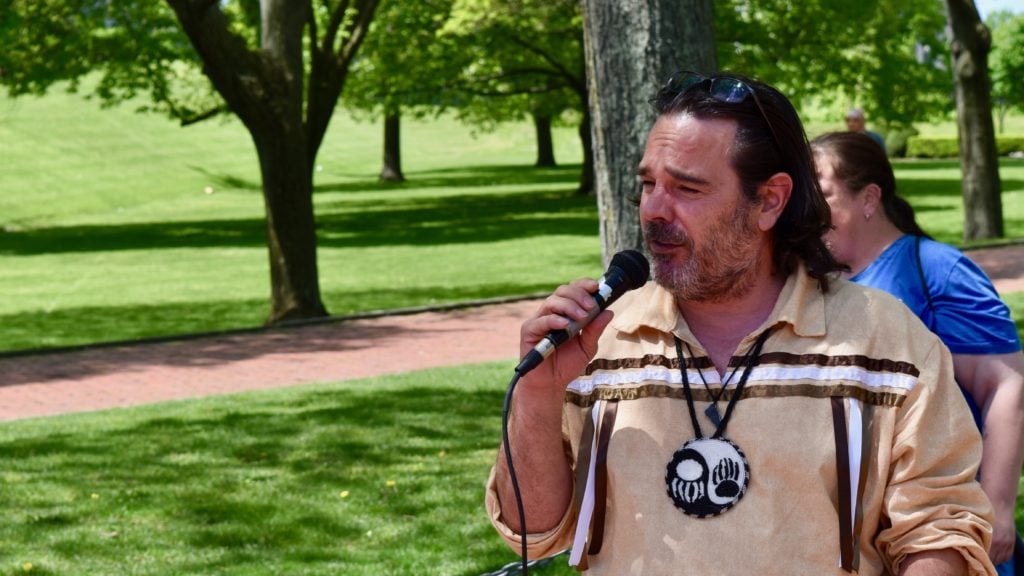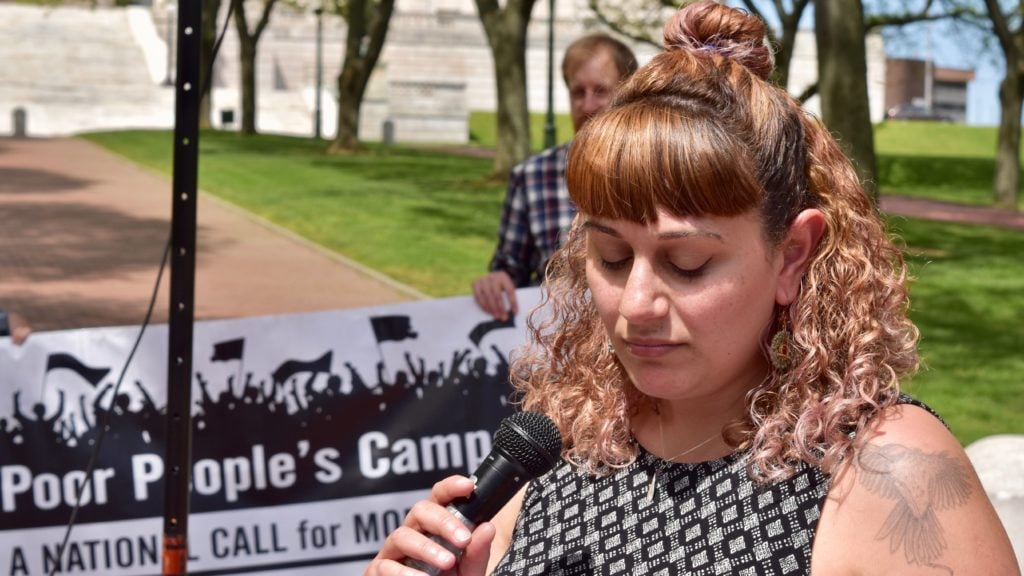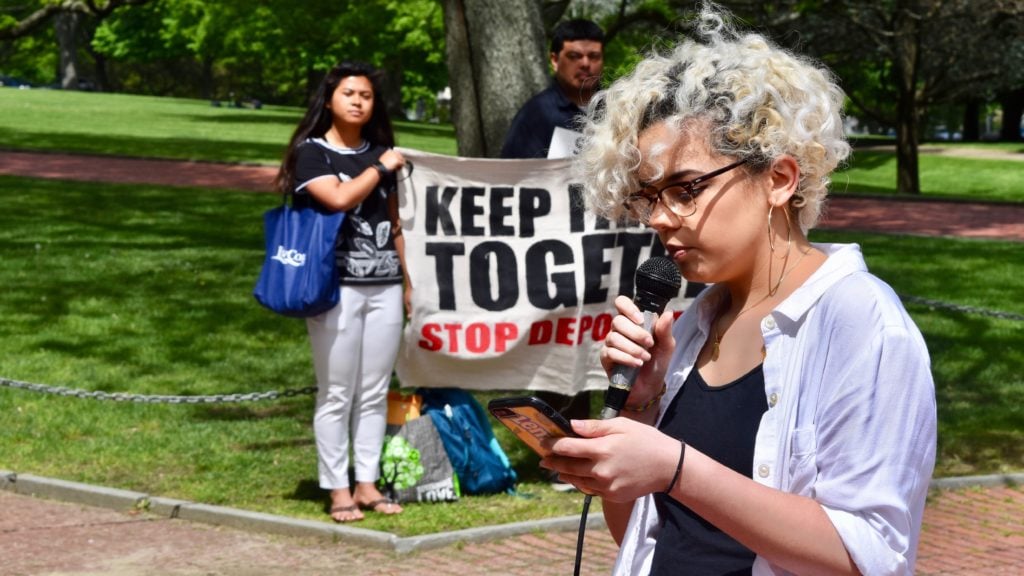Week two of the Rhode Island Poor People’s Campaign takes on systemic racism and poverty
Week two of the Rhode Island Poor People’s Campaign: A National Call for Moral Revival tackled the linked issues of systemic racism and poverty. As they did the week before, activists marched from the Gloria Dei Evangelical Lutheran Church to the Rhode Island State House chanting and singing songs. Inspired by Dr Martin Luther King’s Poor People’s Campaign, organizers will
May 22, 2018, 11:12 am
By Steve Ahlquist
Week two of the Rhode Island Poor People’s Campaign: A National Call for Moral Revival tackled the linked issues of systemic racism and poverty. As they did the week before, activists marched from the Gloria Dei Evangelical Lutheran Church to the Rhode Island State House chanting and singing songs.
Inspired by Dr Martin Luther King’s Poor People’s Campaign, organizers will engage in 40 days of nonviolent direct action and voter mobilization. The movement aims to transform the nation’s political, economic and moral structures in this country. The actions in Providence areo mirrored across the United States.
At the State House, speakers from across Rhode Island spoke about voting rights, immigration and DACA, xenophobia, Islamophobia, and the mistreatment of indigenous communities,
“I’m here to say to our politicians, and to those who champion themselves as environmentalists, that now is the time to come and step up to the plate for our Black, Brown and Indigenous families,” said John Gonzalez, drawing on his experiences at Standing Rock and speaking on indigenous rights. “Particularly those in Pascoag, Burrillville where they have proposed a fracked gas power plant for the middle of the woods in a very fragile biodiversity [area] as well as here, in South Providence, Washington Park. We are opposing National Grid‘s LNG liquefaction facility in an area that is already suffering from high rates of asthma, respiratory and cardio vascular diseases.”
“I’m from Standing Rock,” said Dean Dedman. “I’m a part of that reservation. I grew up there. So pretty much I grew up poor, you know? I know how it is to be poor.”
“How do we all live in the so-called richest country in the world, and we got poverty?” asked Black liberation activist Asata Tigrai, representing the Black and Latino Alliance of Rhode Island. “We got people living in the streets. We got people under housed. We have people that are hungry. We have people that have poor health care. We have children that are poorly educated. We have seniors that buy cat food and dog food to live…
“How is this the richest country in the world?”
“Just because we are American citizens, just because we are first generation Americans, doesn’t mean that we’re not linked to immigration,” said Daisy Benitiz, a first generation American. “We’re all immigrants here. The only people that can truly, ‘I’m not an immigrant’ are the indigenous communities.”
“Poverty and racism are linked,” said David Veliz, a policy advocate and community organizer for Progreso Latino. “When we see racism, like the cops being called on people when they’re not supposed to be called we’re outraged. But racism has become so embedded in our society, so institutionalized that it’s camouflaged. It’s become the norm. It’s become what everyone sees as normal.”
“As a Palestinian I was taught at an early age about colonization and state oppression not through the news or text books, but through my family’s personal history” said Nada Samih-Rotondo. “Across generations Palestinians continue to resist and imagine, and we will not wait for permission to narrate our own stories and our own words. We resist by existing in full bloom.”
“This is our land,” said Cata Lorenzo of AMOR, kneeling and kissing the ground. “Mother Earth accepts us. She doesn’t ask what culture you have, what country you come from, what language you are speaking. She welcomes everybody. She loves everybody.
“Why then are we saying, some people, they are illegal?”
“We’re not different from each other,” said Edwin Rivera, who volunteers with DARE and the George Wiley Center. “You can look in the mirror and see a different character in the face, but inside we are the same.”
Halima Ibrahim, a 10th grader at the Islamic school of Rhode Island and a youth representative from Rhode Island Womxn’s Action Initiative, who delivered a knock-out speech/poem at the March for Our Lives, delivered an amazing poem on being Muslim in America today.
Bella Robinson is a sex worker’s rights activist who has worked in the sex industry for over thirty years. She is the founder and director of the Rhode Island Chapter of Call Off Your Old Tired Ethics (COYOTE RI) since 2010. Bella works to build and strengthen support networks for sex workers in RI and works closely with activists nationwide.
“Once upon a time in this country, 54 years ago to be exact, black people couldn’t vote in large parts of the country, primarily in the South,” said Jim Vincent, president of the NAACP Providence Branch. “All that changed, at least on paper, with the Voting Rights Act.” But the Voting Rights Act has been gutted by the United States Supreme Court, and since the election of President Obama, 34 states (including Rhode Island) have instituted restrictions on voting.
Here is the end of the rally:
Before the march, several people spoke in the auditorium of the Gloria Dei church:
For more information about upcoming trainings and organizing meetings email rhodeisland@poorpeoplescam
To join us go to: www.poorpeoplescampaign.or
Uprise RI is entirely supported by donations and advertising. Every little bit helps:



